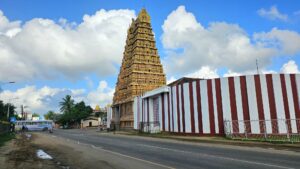South Africa’s Zulu Tribe

Journey into Tradition: Unveiling the Zulu Tribe of South Africa
Zulu Village Name is Phezulu Cultural Village & Reptile Park
During my recent journey to South Africa, I embarked on a memorable visit to a Zulu tribal village. Set amidst the picturesque landscapes of South Africa, the village teemed with traditional Zulu homes and a bustling community of locals. As I wandered through the village, I was captivated by the unique architecture of the thatched-roof homes, each one representing a cherished piece of Zulu heritage.
The warmth and hospitality of the Zulu people greeted me at every turn. Their genuine eagerness to share their customs, traditions, and way of life made me feel truly welcomed and embraced by their community. Everywhere I looked, there were vibrant colors, lively conversations, and the rhythmic beats of traditional music echoing through the air.
Exploring the village allowed me to witness the strong sense of unity and camaraderie that binds the Zulu people together. Their deep-rooted connections to one another and their shared history were evident in every interaction and every smile exchanged.
My time spent in the Zulu tribal village was an enriching journey of cultural discovery and connection. It offered me a glimpse into the heart and soul of the Zulu community, leaving me with cherished memories and a profound appreciation for their enduring traditions.
Discovering the Culinary Delights of the Zulu Tribe
Zulu tribal food is a reflection of the rich cultural heritage and culinary traditions of the Zulu people in South Africa. Their cuisine boasts a diverse array of dishes, each offering a unique blend of flavors and textures.
One of the most iconic Zulu dishes is umfino, a hearty stew made with leafy greens such as spinach or cabbage, cooked with maize meal. This dish is not only delicious but also nutritious, providing a wholesome meal for families across Zulu communities.
Another staple in Zulu cuisine is ujeqe, a type of steamed bread made from maize meal and flour. Ujeqe is often enjoyed alongside savory stews or soups, adding a comforting element to the meal.
For special occasions and celebrations, Zulu people may prepare inyama yenhloko, which translates to “head of the beast.” This dish features a whole sheep or goat’s head, slow-cooked until tender and seasoned with aromatic spices. While it may seem unconventional to some, inyama yenhloko holds great cultural significance and is a symbol of communal feasting and unity.
No Zulu meal is complete without amarhewu, a traditional fermented maize drink. With its slightly sour taste and thick consistency, amarhewu is a refreshing beverage enjoyed by people of all ages in Zulu communities.
These are just a few examples of the rich and diverse culinary heritage of the Zulu people. Their food not only nourishes the body but also serves as a means of preserving cultural identity and fostering community bonds.
Embracing Tradition: Zulu Dance and Festivals
The Zulu people of South Africa have a rich tradition of dance and festivals, which are integral parts of their cultural heritage. Here’s a glimpse into the captivating world of Zulu dance and festivals:
1. **Zulu Dance:** Dance holds immense cultural significance for the Zulu community, serving as a form of expression, storytelling, and celebration. Zulu dances are characterized by rhythmic movements, vibrant costumes, and spirited performances. The “Indlamu,” or Zulu war dance, is one of the most iconic Zulu dances, symbolizing strength, bravery, and unity. Other dances like the “Ushameni” and “Ingoma” are performed during various cultural events and ceremonies, showcasing the richness of Zulu tradition.
2. **Umhlanga Festival:** Also known as the Reed Dance or Umkhosi woMhlanga, the Umhlanga Festival is a significant cultural event celebrated by the Zulu people. Held annually in late August or early September, the festival is a vibrant display of Zulu cultural pride. Young unmarried women participate in the festival, gathering reeds and presenting them to the Zulu king as a gesture of respect and loyalty. The Umhlanga Festival promotes unity, purity, and the preservation of Zulu customs and values.
3. **Shaka’s Day:** Shaka’s Day is dedicated to honoring the legacy of King Shaka Zulu, one of the most revered leaders in Zulu history. Celebrated on September 24th, the festival commemorates King Shaka’s contributions to Zulu society and pays tribute to his vision and leadership. Festivities include cultural performances, traditional rituals, and storytelling sessions that highlight the enduring impact of King Shaka on Zulu culture.
4. **Incwala Festival:** While primarily celebrated by the Swazi people, the Incwala Festival also holds significance for the Zulu community and other neighboring tribes. This sacred ceremony marks the beginning of the harvest season and is characterized by rituals, prayers, and communal gatherings. The Incwala Festival underscores the importance of community solidarity, spiritual renewal, and the preservation of cultural heritage.
Through their dance and festivals, the Zulu people celebrate their identity, history, and values, keeping their cultural traditions alive for generations to come.
To find a Zulu village in South Africa, you can follow these steps:
1. **Research and Planning:** Start by researching Zulu villages in South Africa. Check online resources, travel guides, and cultural organizations that promote Zulu heritage and tourism.
2. **Contact Local Tourism Offices:** Get in touch with local tourism offices, especially in regions known for Zulu cultural heritage like KwaZulu-Natal province. They can provide information on Zulu villages open to visitors and may help arrange guided tours or visits.
3. **Join Organized Tours:** Look for tour operators offering guided tours to Zulu villages as part of cultural excursions or heritage experiences. Seek out companies specializing in cultural tours or those focusing on indigenous communities.
4. **Connect with Cultural Centers:** Explore Zulu cultural centers or heritage sites that offer opportunities to experience Zulu village life and traditions. These centers often host cultural performances, craft demonstrations, and educational programs about Zulu culture.
5. **Ask Locals:** Once in South Africa, ask locals or residents about nearby Zulu villages. They may provide recommendations or directions to authentic Zulu communities that welcome visitors.
6. **Respect Local Customs:** When visiting a Zulu village, it’s crucial to respect local customs, traditions, and privacy. Always seek permission before taking photographs or participating in cultural activities, and be mindful of cultural sensitivities.
By following these steps and approaching the experience with respect and cultural sensitivity, you can deepen your understanding and appreciation of Zulu culture while immersing yourself in the rich heritage of a traditional Zulu village in South Africa.

Nallur Festival 2024
Nallur Murugan (Kandaswamy) Kovil Festival 2024 The Nallur Murugan Temple is located in Jaffna, Sri Lanka. It is the most famous Hindu temple in the

Jaffna 7Days Tour
Unraveling Jaffna: A Week-Long Journey Through the Treasures of Sri Lanka’s Northern Gem 7-day tour plan in Jaffna, including food and restaurant recommendations: **Day 1:

Jamuna Eari
Jaffna Jamuna Eari in Sri Lanka: Unraveling the Mysteries of an Ancient Water Reservoir Yamuna Eri, an ancient pond located in Nallur, Jaffna, Sri Lanka,
